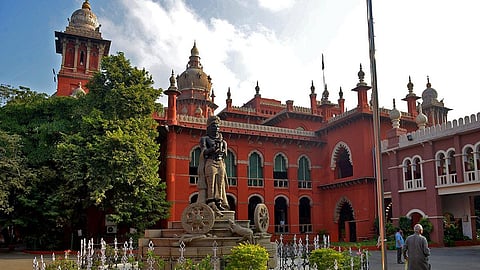

CHENNAI: The Madras High Court on Wednesday refused to pass any interim orders on the petitions filed by online gaming platforms challenging the Tamil Nadu Online Gaming Authority’s newly introduced regulations on real money games.
A division bench of Justices SM Subramaniam and K Rajasekar, however, directed the Centre and the Tamil Nadu governments to file their reply to the petitions in two weeks and accordingly, adjourned the matters.
The petitions included Play Games 24x7 Private Limited, Head Digital Works Private Limited, Junglee Games India Private Limited.
These companies have challenged the Tamil Nadu Online Gaming Activity (Real Money Games) Regulations, 2025. The main contentions are against Regulation 4 (i) which prohibits minors under 18 years from playing the games, 4 (iii) which provides for mandatory registration of know your client (KYC) with an Aadhaar number for opening an initial gaming account; 4 (viii) which provides for prohibiting playing the RMG during blank hours- from 12 am to 5 am.
Moreover, online gaming platforms have also challenged the regulations providing for compulsory pop-up caution alerts every thirty minutes after the first hour of play, setting daily, weekly, and monthly monetary limits for playing the games and the connected alert message; and a mandatory display of caution alert of ‘online game is addictive’.
Senior counsels, including Mukul Rohatgi, Sajan Povayya and V Raghavachari, appearing for the gaming companies, questioned the legality of the regulations since the Centre has already put in place such measures through the Information Technology Act and the Rules framed under the Act.
“Section 5 of Tamil Nadu Prohibition of Online Gambling and Regulation of Online Games Act, 2022 which gives power to regulate the game is invalid and inoperative given the Central legislation (IT Act and Rule), Rohatgi submitted."
The counsels also questioned the scientific data, based on which, the timing restrictions are introduced.
Advocate General (AG) PS Raman, representing the TN government, told the court the state is well within its rights to bring in the regulations to protect vulnerable persons facing financial and psychological risks.
The time restriction was based on the report received from experts who have found the maximum time of addiction among the youth is from midnight to early morning, the AG said.